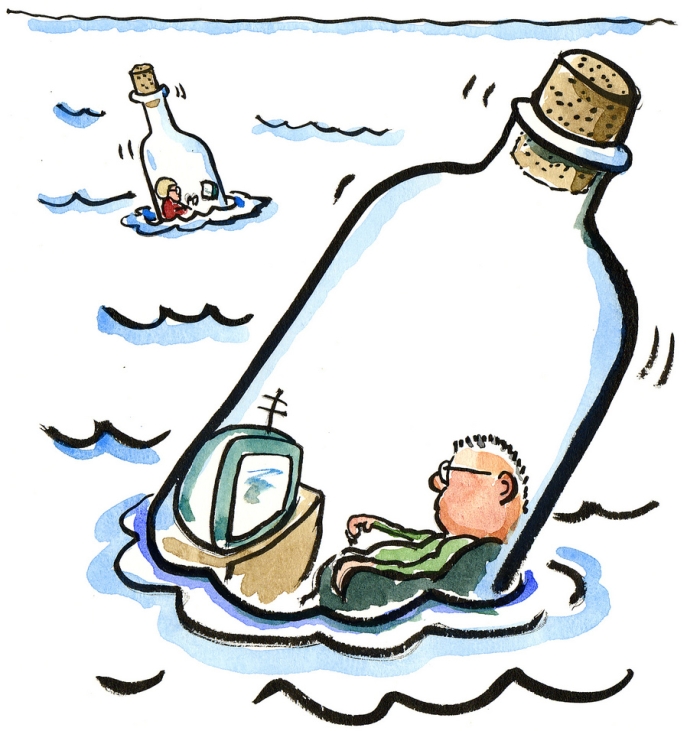Everyone wants to know how to be a leader, but few are willing to actually become one.
The Sea of Mediocrity is an endless ocean where most of the world treads water. Effective leaders, however, have learned how to avoid those waters so as not to experience shipwreck. Strong leaders do not frequent the pools of mediocrity.
“The Sea of Mediocrity is an endless ocean where most of the world treads water. Strong leaders do not frequent the pools of mediocrity.”
Leadership is influence. With that said, then, there are many people who find themselves a leader at one point or another. If you have any influence over a person, a project or a system, then—if only for a short time—you are a leader. The question we each need to ask and answer for ourselves is, “Am I a good leader or am I mediocre?”
How To Be A Leader
Leaders are men and women who set the goals, chart the course and determine the destination, find the appropriate crew to hoist the sails and then get out-of-the-way. Good leaders know how to bring the best out of people. They are encouragers and motivators. They see the target ahead and pursue it until victory is well in hand.
Are you a leader of that quality? Are you made of that material?
Four Steps On How To Be A Leader
The first three steps are both necessary and critical in order for the fourth to become reality. What I find interesting, however, is that many people find it difficult to deal with the fourth. It is strange how often we can’t appropriately handle success.
Strong leaders are effective at doing the following 4 things:
- DEFINE the goal.
- Identify the OBSTACLES.
- Develop a STRATEGY.
- Reap the REWARD.
The Sea of Mediocrity is filled with people who think often about #1, dream about tasting #4, yet take little consideration for #2 and #3. It’s not enough to dream. You also need to plan and strategize.
Good Leaders Know How To Identify The Obstacles
Effective leaders are experts at identifying OBSTACLES because, really, you can only run face-first into the wall so many times before you’re knocked out. You need to know what the problems are in order to solve the puzzle. It doesn’t matter if your occupation is business, writing, marketing, communications, or even pastoring a church; you must identify the OBSTACLES that hinder your progress if you want to succeed at #4.
Good Leaders Know How To Develop A Strategy
It’s one thing to identify the goal, it is another thing to formulate a plan of achievement. I believe this is what separates the good leaders from the mediocre ones. It’s what separates the ladies from the girls and the men from the boys, if you will. Strong leaders are good at developing a well-thought-out plan and they know how to bring it to fruition.
Notice…you have to first identify the OBSTACLES in order to construct a proper plan of action. The plan (or STRATEGY) is to be developed based upon consideration of the goal and the obstacles. If you don’t have a good plan of attack, you won’t achieve #4, the REWARD. It really is that simple.
If you don’t have a strong plan, the only thing you will achieve are excuses. More and more and more excuses about why we didn’t succeed. Do yourself a favor and stop doing it. Your tribe needs you to be a better leader for them!
What Should You Do Next? Allow Me To Suggest Two Things:
- Please leave a brief comment or suggestion below and let me know what you think about this article, whether good, bad or otherwise.
- Look down. See those social sharers? Would you mind tweeting, sharing or “liking” it to your social media followers? (You’re awesome, by the way. Thanks!)
* Image credit: HikingArtist.com (Creative Commons)


Have you thought about how to be a leader? What do you think about this list of four traits for an effective leader?
Definitely agree with you, Charles, although it’s hard to limit the number of things leadership “is” or the number of things leaders need to be good at to be effective. A couple others that come to mind are the ability to know yourself and (speaking as a consultant) the ability to accurately/objectively assess the present situation at any given time.
Nathan, I think that “to know yourself” is a powerful one. How can we truly lead if we don’t know ourselves, our weaknesses or strengths, etc? A good reminder.
I don’t know if I struggle in any of those areas. I of course want to improve in each one of those areas. But probably more likely focus on the areas that I am stronger in, which would be strategy development.
I think that is the key, Juan, to focus on areas that are your strengths.
If there is an area of our life that is a weakness we can certainly work to develop it. However, our strengths are what makes us strong and influential. Those are areas we should focus on.
Keep up the great work!
This is an important post. I like simple and straight forward title. I think many who lead don’t think about obstacles until they arrive. You made a nice point of the importance of identifying them early.
Thank you!
The thing I struggle with the most is overcoming people’s objections and the obstacles they throw up. Gaining the cooperation of people who don’t want to cooperate. I’m a team player and I don’t understand people who aren’t, so when I run into that kind of resistance, I just say, ‘fine, I’ll do it myself.” Which never really works out.